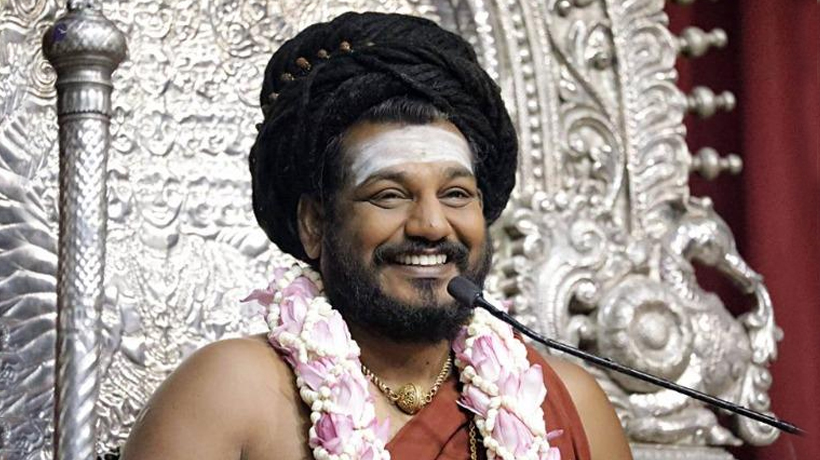Trending Now
- IPL 2024 begins with a bang. First contest between CSK and RCB.
- Election commission allots mike symbol to Naam Thamizhar Katchi
- AIADMK promises to urge for AIIMS in Coimbatore, in its election manifesto.
- Ponmudi becomes higher education minister.
Tamilnadu News
Logic lacking behind making Nityananda videos viral, say experts
![]() November 22, 2018
November 22, 2018
Netizens have made the self-proclaimed godman Swami Nityananda Paramhansa of Karnataka very famous by making his videos viral. When people are struggling with the issue of smog, this sanyasi promises a third eye that can see through walls. In one of his ‘enlightenment’ workshops sitting on his silver throne with his near naked torso, he goes to the extent of challenging Einstein’s theory and gives nerve-wracking flawed logic and explanation to prove why E is not equal to mc^2.
He was jailed briefly under charges of molestation and rape, after claiming to attain moksha through sexual union. Rationalists find it strange that even after having seven cases of fraud against his foundation in India and the US, his disciples flock to defend him.
The snippets from his videos circulated widely can be a medium to gain popularity, says consultant psychiatrist Dr V Umamaheshwari of KG Hospital.
The reason behind his videos being viral is that the content tends to evoke some sort of strong emotions – anger, disgust, happiness or laughter – in the viewer’s mind. Happy emotions tend to outperform sad ones in the realm of sharability. “When we care, we share,” she adds
“I find him and his ideologies very funny. I know there is no sense in what he is saying. It is purely from an entertainment perspective. I could use a quick laugh on my hectic day to destress myself. Every statement of his is unexpected. This makes me want to share the video with everyone I know,” says a follower.
Things which are unique and unexpected stand out to get attention which is vital for virality. There are three reasons why a video becomes viral and gets more than a million views, say observers. First, influencers like Nityananda who have a good base of following introduce average people to interesting things or unique concepts. The second step is followers or group of people popularise it by sharing it on social media platforms. The process is accelerated and communities start forming a “phenomenon”. The last step is “participation” of various communities which is responsible for propagating the content rapidly, says psychologist Archana.
People who seem to respect him, put him on a pedestal to open their third eye. Others who find his content funny should think twice if it is worth promoting a fake spiritual guru who promotes the use of marijuana by saying it helps in meditation or quotes to give non-humans the gift of speech and language by his powers, they say.
























